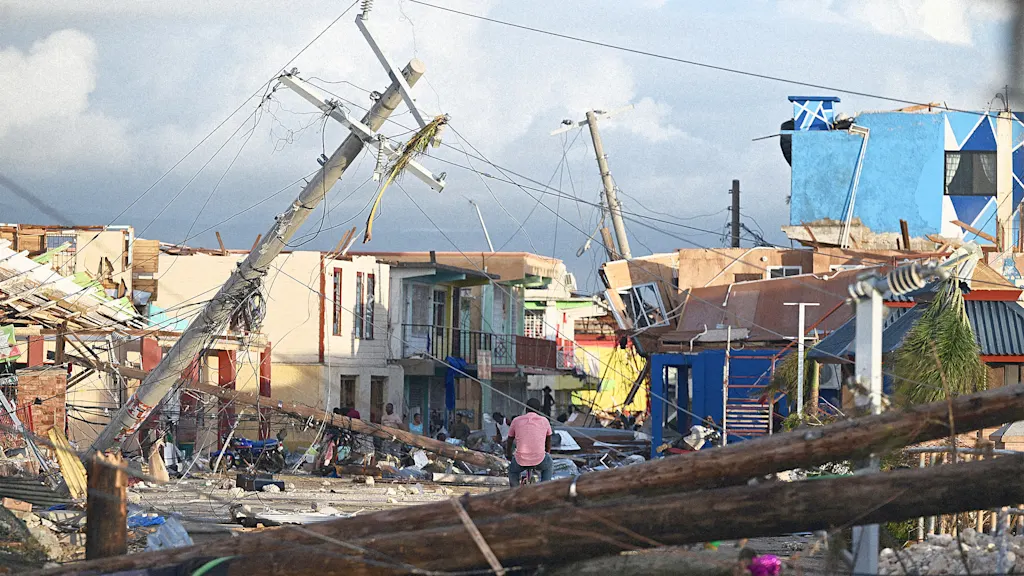
"The ocean was 2.2 degrees Fahrenheit (1.2 degrees Celsius) warmer than average for this time of year-conditions that were "made up to 900 times more likely by human-caused climate change," according to the scientists at the research nonprofit Climate Central. Carbon emissions from human actions trap heat in the atmosphere, but our oceans absorb most of that heat-about 93% since 1970."
"As the storm moved over those warm waters, it rapidly intensified. In just 24 hours, from October 25 to 26, its wind speeds doubled from 70 mph to 140 mph-turning it from a tropical storm into a Category 4 hurricane. This level of intensification is "at the extremes of what has ever been observed," according to scientists at Imperial College London."
Hurricane Melissa made landfall in Jamaica on October 28 as a Category 5 storm with winds of 185 mph. The storm moved over ocean waters about 1.2°C (2.2°F) warmer than average, a condition made up to 900 times more likely by human-caused climate change. Oceans have absorbed about 93% of excess heat since 1970, fueling rapid intensification. Melissa's winds doubled from 70 mph to 140 mph in 24 hours and later reached Category 5, an intensification at the extremes of recorded observations. Climate change increased Melissa's likelihood roughly fourfold, raised peak winds by about 10 mph, and amplified overall damage.
Read at Fast Company
Unable to calculate read time
Collection
[
|
...
]